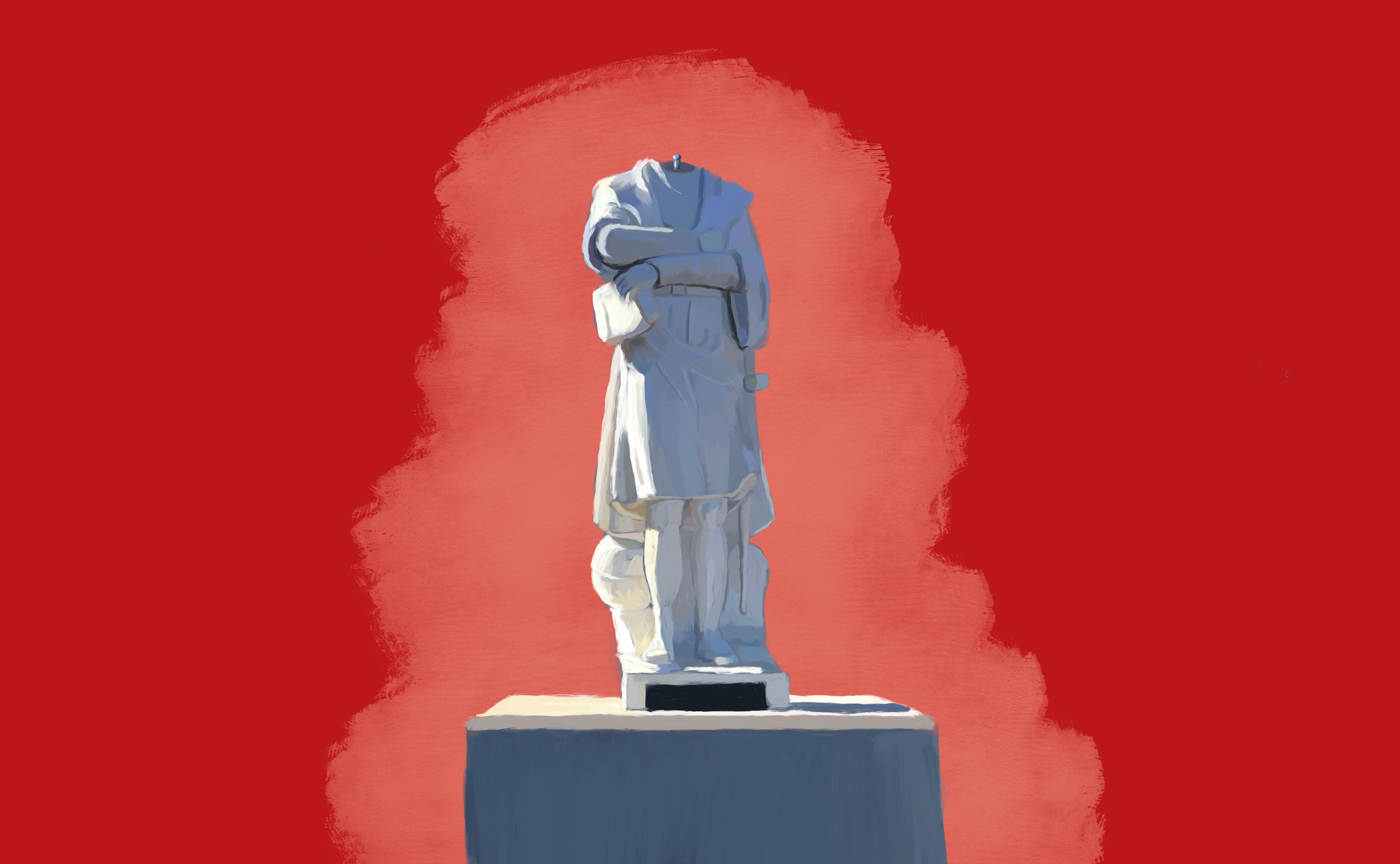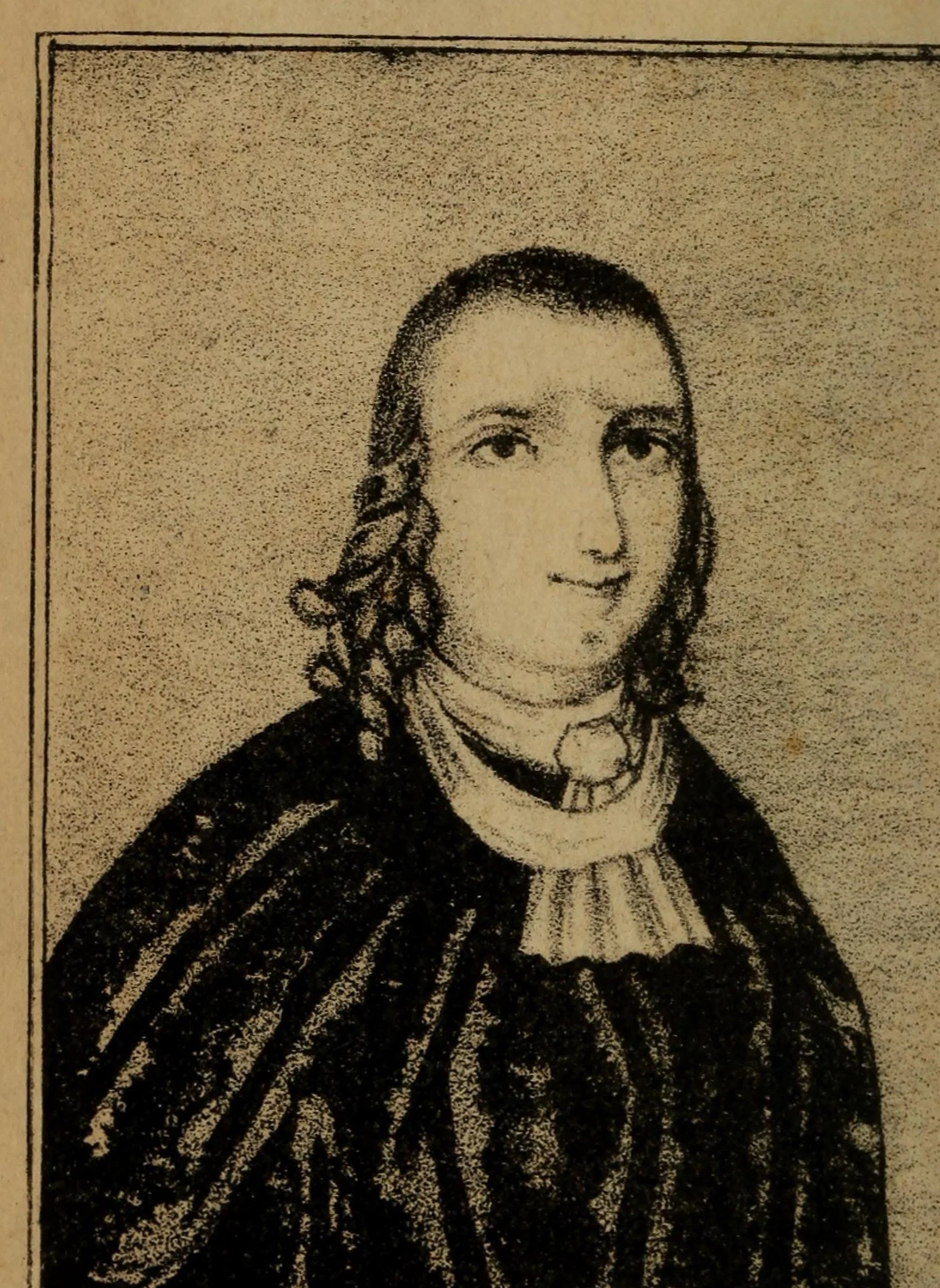Archives
Colonial “Illegals”: Marronage Communities and the Ongoing War on Migrants
“Experience is our best teacher, and we must check time: remember what we have lost, who we have been, and commit to supporting, in whatever ways we can, the communities and networks of undocumented workers and migrants that the government refuses to protect and instead actively targets.”
Through Mary’s Eyes: Enslavement, Marriage, and Black Women’s Subjectivity
“In providing a compelling microhistorical lens into the intersections of enslavement, marriage, Christianity, and women’s subjectivity, the Mary-Hylas case exemplifies the layered experiences of Black women in the Americas in the eighteenth century.”
A Transgressive Revolution: America 250 and the Public Universal Friend
“A political administration dedicated to pretending there is no room for complexity or self-discovery in people’s experiences of gender must erase the stories providing evidence to the contrary.”
Who Tells Your Story? Philip Schuyler’s Legacy of Enslavement and Freedom Beyond Hamilton
“While Northern slavery does not get as much coverage in historical remembrance, it was still significant. Census records note that nearly 14% of New York's population were slaveholders in 1790, amounting to 20,000 enslaved people across the state.”
Is Repair Possible in the University Museum?
Inside the white-walled, vitrine-filled museum, it is easy to assume that the objects within it neutrally represent history’s many turns. Conservation shapes how those objects are preserved, displayed, and interpreted. From putting back together shards of a pot after excavation to using a solution to remove acid from paper, the field’s practices are aimed at allowing access to historical materials. I worked in conservation for several years, and was initially drawn to the field because of the ethics of keeping extant objects of history accessible to researchers. However, until I was asked to repair a few cracks in a life-size painted plaster bust at the Peabody Museum of Archaeology and Ethnology at Harvard University, I did not realize how fraught the decision to preserve can be. Although the discipline of conservation has an ethos of care, many of the objects that make up the museum instead conspicuously mark its anti-humanist foundations. Conservation can mask the museum’s colonial and imperial origins.
Family and Color: The Social and Cultural Roots of Dominican Colorism
In early January, my partner and I became first-time parents. We immediately fell in love with every minute detail of this tiny stranger whom we had brought home. Like many new parents, we sent photos and videos to our family members, hoping to share our joy and introduce our little one to those we love.
Call for Applications for the C. Dallett Hemphill Summer Insurrect! 2024 Internship
The McNeil Center for Early American Studies at the University of Pennsylvania is co-sponsoring a summer internship with Insurrect! The stipend for the internship is $3,000. This internship is open to undergraduate students enrolled at McNeil Center Consortium institutions. Interns are expected to work 35 hours per week for 8 weeks. Beginning and end dates will be arranged between the Insurrect! and the intern, but the internship will conclude by September 1, 2024. One half of the stipend will be paid at the beginning of the internship, and the other half will be remitted at its completion.
Mutual Aid in Early America: A Roundtable
This roundtable includes reflections from four scholars who presented on a panel, “Mutual Aid in Early America” at the Society of Early Americanists (SEA) Biannual Meeting in June 2023, chaired by Liz Polcha. In this roundtable for Insurrect!, the panelists reflect on their own presentations as well as the conversation that ensued. Teachers and writers have a different orientation to mutual aid than organizers, but as several of the authors in this roundtable point out, that does not mean that mutual aid isn’t on our minds in our pedagogy and research. What we offer here is a larger reflection on a question that Kimberly Takahata poses below: how can we support and engage in mutual aid without placing our own demands upon it? Further, each author offers a list of suggested resources for further reading (thanks to Eagan for this idea!)
Injustice and Romance: Critical Reflection on Helen Hunt Jackson’s Ramona
Helen Hunt Jackson’s Ramona, first published in 1884, was initially met with mixed reviews by readers of the time. The novel is set after the Mexican-American War throughout the state of California following the life of a Scottish-Native American woman, Ramona, that was orphaned and subsequently fostered by a Mexican family, the Morenos. In the novel, the relationship between Ramona and her foster mother, Gonzaga Moreno, is described as full of tension due to Ramona’s mixed racial background. We see Ramona grow into a beautiful young woman who falls in love with Alessandro, a Native American man who has a friendly work relationship with the Morenos. Throughout the novel, we see the many hardships that both Ramona and Alessandro face due to the discrimination against Native American communities and how this pushes Alessandro to his demise. The novel ends with Ramona marrying Felipe Moreno, her once foster brother, and essentially being rescued from hardship and living a comfortable life.
Taking One’s Place: Affirmative Action and the Legacy of Academia’s Black Expats
Opponents of ‘Affirmative Action’ frame the policy as something that is given, defining it as an unfair advantage extended to the undeserving. For example, Roger Clegg, former president and general counsel for the Center for Equal Opportunity that appeared before the US Supreme Court this June in Students for Fair Admissions, Inc. v. President and Fellows of Harvard College, 600 U. S. (2023), exemplifies this misperception, oversimplifying the matter in his 2007 statement to The U.S. Equal Employment Opportunity Commission:
Early American Disability Studies: Teaching (and Confronting) Internalized Ableism
How might college instructors introduce students to disabled people in an earlier America who expressed negative views about disability? How can we discuss ableism and internalized ableism in the classroom without chastising or shaming?
What Newport, Rhode Island Can Teach Us about the Myth of American Origin Stories
We are excited to share the following essay and podcast (both audio and transcript) from a student who worked with Professor Tara Bynum to develop this podcast as part of their collaborative research on early American literature and the history of Newport, Rhode Island. Melina Hegelheimer recently graduated from the University of Iowa with a bachelor's degree in philosophy and ethics & public policy. They are currently pursuing a master’s degree in library sciences at the University of Illinois, and hope to one day work in public libraries. Melina’s essay and podcast represents one example of how undergraduate student public history writing can be adapted for a publication like Insurrect!, and we hope their post inspires more students to submit their writing to online magazines.
“To live without work”: How Two Deaf Brothers Reimagined Their Lives in Eighteenth-Century Connecticut
In May 1792, two men put down their tools. They did not intend to pick them up again. Peter and Squier Brown, brothers who together owned a “considerable Estate” in Stamford, Connecticut, informed their family that they intended to sell their land, live off the proceeds, and never work again. Their decision was sufficiently radical to cause frustration and concern among their family and the state authorities. However, permission to sell the land, unusually, resided with their brother, Joseph, and the General Assembly of Connecticut. Why was this? Joseph was the conservator to Peter and Squier, who had been “deaf and dumb from their birth.”
Refusing Berdache, Becoming Two-Spirit
In the summer of 1990, the spirit-name Two-Spirit was gifted to the growing community of gay, lesbian, bisexual, transgender and queer Indigenous people of North America. In addition to giving a name to the unique identities and roles shared by many queer Indigenous people, the widespread adoption of Two-Spirit also almost immediately moved to disrupt the academic complex that had accumulated around the study of “the berdache”—a complex with roots dating back to the eighteenth century. The history of “berdache” and the still-unfolding legacy of the adoption of “Two-Spirit” offers a powerful story about how academic theorizing has been continually built on the bodies of gender-diverse Indigenous people, but it also shows us how Two-Spirit people have been able to disrupt this cycle through communal action.
Statement of Support for Striking Workers
Dear readers and supporters of Insurrect!,
We are writing to broadcast our solidarity with striking workers in higher education, the publishing industry, and the cultural sector more broadly. In the past months, we’ve seen an incredible uprising among writers, researchers, teachers, editors, journalists, artists, curators, art handlers, and students fighting for better working conditions. These cultural workers are fighting against increased precarity in an on-going COVID-19 pandemic and in an environment with unprecedented health risks due to waves of flu and RSV cases. They are insisting that education, the arts, and humanities sectors deserve fair working conditions, because without such, we are even more vulnerable to the twin evils of fascism and white supremacy. Collective bargaining campaigns and strikes require critical thought and labor that allows the world to see itself unmasked.
Abortion on the Margins: How Material Texts Shaped Early-American Reproductive Freedom
The table of contents for Alfred G. Hall’s The Mother’s Own Book (1843) is unusually comprehensive in its descriptions of the practical medical advice contained in the volume’s pages. Readers are told where to look in the text if they need to learn how to cope with painful menstruation, clean their vaginal canals, and read the shape and color of their areolas for signs of possible pregnancy. But folded into this otherwise frank description of the volume’s contents are two subtitles advertising “secret knowledge.” If you follow the second of these subtitles to its corresponding page, you find a step-by-step guide to treating “suppressed menstruation” (54).
Writing History for the Public: A Panel
On August 3, 2022, Insurrect! hosted a panel on doing history for the public. It featured Dr. Kellen Heniford discussing social media strategy, Adam Xavier McNeil on his experiences with podcasting, and Dr. Elise A. Mitchell sharing her process for public-facing writing. Insurrect! summer fellow Marisa S. Budlong moderated the panel and the question and answer period at the end.
An Interview with Recuerdos de Nicaragua, Part Three
Last spring, Elise A. Mitchell recorded a conversation with members of Recuerdos de Nicaragua, the founder and head archivist, Jasmine Chavez Helm, and Melanie White, the research and content manager. Recuerdos de Nicaragua is a physical and digital archive that chronicles the history of the Indigenous and Afro-descendant communities in the Mosquito Coast of Honduras and Nicaragua. They currently have a GoFundMe campaign to support their collections, digitization, and future programming. This published interview is based on their original conversation and has been edited for clarity.
An Interview with Recuerdos de Nicaragua, Part Two
Last spring, Elise A. Mitchell recorded a conversation with members of Recuerdos de Nicaragua the founder and head archivist, Jasmine Chavez Helm, and Melanie White, the research and content manager. Recuerdos de Nicaragua is a physical and digital archive that chronicles the history of the Indigenous and Afro-descendant communities in the Mosquito Coast of Honduras and Nicaragua. They currently have a GoFundMe campaign to support their collections, digitization, and future programming. This published interview is based on their original conversation and has been edited for clarity.



















